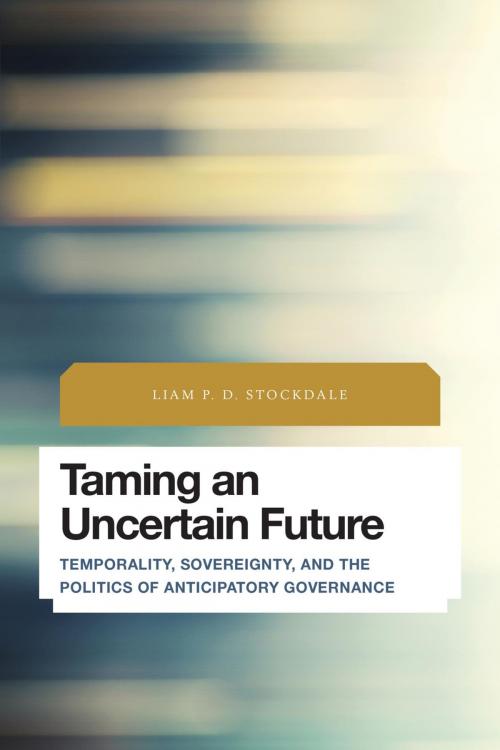Taming an Uncertain Future
Temporality, Sovereignty, and the Politics of Anticipatory Governance
Nonfiction, Social & Cultural Studies, Political Science, International, International Security, Religion & Spirituality, Philosophy, Political, International Relations| Author: | Liam P.D. Stockdale | ISBN: | 9781783485024 |
| Publisher: | Rowman & Littlefield International | Publication: | December 16, 2015 |
| Imprint: | Rowman & Littlefield International | Language: | English |
| Author: | Liam P.D. Stockdale |
| ISBN: | 9781783485024 |
| Publisher: | Rowman & Littlefield International |
| Publication: | December 16, 2015 |
| Imprint: | Rowman & Littlefield International |
| Language: | English |
A popular cliché in contemporary public discourse holds that we live in a time of increasing uncertainty; that the next catastrophe is perpetually imminent and yet increasingly beyond our capacity to foresee. The future, in short, is becoming much more difficult to control. One consequence of this increasingly widespread understanding of the future is that societies have turned to anticipatory governance strategies based on such concepts as risk management, the precautionary principle, and pre-emption to manage human affairs.
This book takes an in-depth look at this trend by using the example of the ‘pre-emptive security’ strategies deployed in the post-9/11 War on Terror to develop a critical understanding of how the proliferation of such anticipatory governance strategies affects the way political power is organized and exercised. The book also makes a wider case for taking issues of time and the future more seriously in the study of contemporary global politics in particular and the social world more generally.
A popular cliché in contemporary public discourse holds that we live in a time of increasing uncertainty; that the next catastrophe is perpetually imminent and yet increasingly beyond our capacity to foresee. The future, in short, is becoming much more difficult to control. One consequence of this increasingly widespread understanding of the future is that societies have turned to anticipatory governance strategies based on such concepts as risk management, the precautionary principle, and pre-emption to manage human affairs.
This book takes an in-depth look at this trend by using the example of the ‘pre-emptive security’ strategies deployed in the post-9/11 War on Terror to develop a critical understanding of how the proliferation of such anticipatory governance strategies affects the way political power is organized and exercised. The book also makes a wider case for taking issues of time and the future more seriously in the study of contemporary global politics in particular and the social world more generally.















